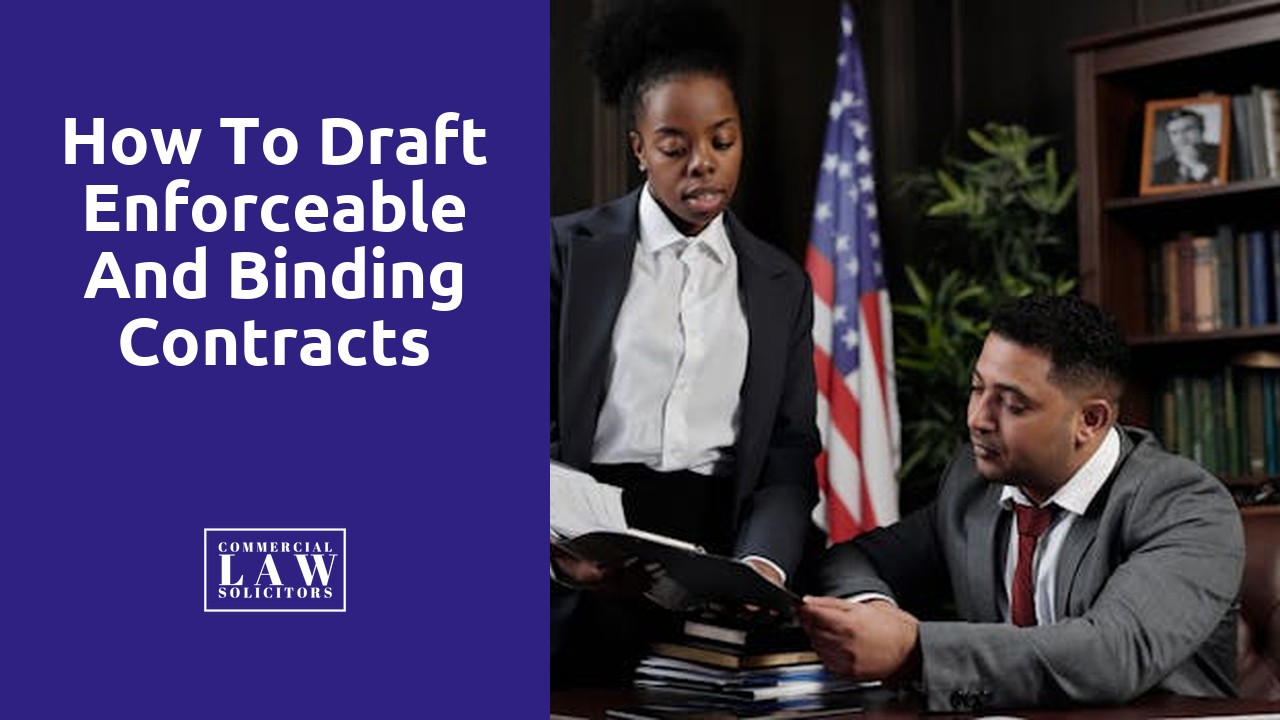How to Draft Enforceable and Binding Contracts

Navigating the Legal Landscape: Crafting Contracts That Stick
Crafting contracts that hold up in court requires a deep understanding of the legal landscape. It is not enough to simply put pen to paper and hope for the best. Every word, every clause must be carefully considered and strategically crafted to ensure the agreement stands strong under scrutiny.
One of the key ingredients for creating contracts that stick is clarity. Ambiguity can lead to confusion and disagreements down the line. By using clear, concise language, parties can avoid misunderstandings and clearly outline their rights and obligations. Including specific details, such as dates, quantities, and payment terms, can further strengthen the contract and leave little room for interpretation.
Mastering the Art of Creating Ironclad Agreements
Creating ironclad agreements is an art that requires a meticulous approach and attention to detail. These agreements serve as the backbone of any business relationship and are crucial for establishing clear expectations and protecting the interests of all parties involved. To master the art of crafting ironclad agreements, it is essential to understand the key ingredients that make these contracts robust and legally binding.
First and foremost, clarity is paramount when it comes to creating ironclad agreements. Ambiguity can lead to misunderstandings and disputes down the line, so it is crucial to ensure that the language used in the contract is clear, concise, and easily understood. Each provision and clause should be carefully articulated, leaving no room for interpretation or confusion. Additionally, it is important to define any industry-specific jargon, technical terms, or acronyms that may be used in the agreement, as this will further enhance clarity and understanding.
From Pen to Paper: Ensuring Your Contracts Stand Strong
Crafting a strong and enforceable contract requires careful attention to detail and a solid understanding of the legal landscape. From pen to paper, every word and clause must be meticulously crafted to ensure that the contract stands strong in the face of any potential challenges. Ambiguity and loopholes must be avoided at all costs, as they can lead to disputes and legal battles down the line.
One key ingredient in creating a contract that stands strong is clarity. Each provision and term should be drafted in clear and concise language, leaving no room for interpretation or confusion. The use of precise terminology and avoiding overly technical jargon can help ensure that all parties involved understand their rights and responsibilities. By eliminating any potential for misunderstanding, a well-drafted contract can protect all parties and provide a solid foundation for a successful business relationship.
Unveiling the Secrets to Crafting Contracts That Hold Water
When it comes to crafting contracts that hold water, there are a few secrets that every legal professional should be aware of. First and foremost, clarity is key. A contract should leave no room for interpretation or ambiguity. By using clear and concise language, you can ensure that both parties understand their rights and obligations. Avoid jargon or overly complex language that can confuse or mislead. Instead, opt for simple and straightforward terms that leave no room for misunderstandings.
Another secret to creating contracts that hold water is to anticipate potential issues or disputes. While it may not be possible to predict every roadblock that could arise, taking the time to carefully consider potential scenarios can help you craft clauses and provisions that effectively address them. By including provisions for dispute resolution, termination, and breach of contract, you can provide a solid framework for both parties to follow in the event of disagreement. Remember, a contract should be a roadmap for success, not a source of contention.
Expert Tips for Drafting Contracts That Leave No Room for Ambiguity
When it comes to drafting contracts, precision and clarity are of the utmost importance. Ambiguity has no place in a well-crafted agreement, as it can lead to confusion, disputes, and unforeseen consequences. To ensure that your contracts leave no room for ambiguity, here are some expert tips to keep in mind.
First and foremost, it is crucial to be specific in your language and avoid using vague terms or general statements. Clearly define all terms and conditions, leaving no room for interpretation. Use concrete language that leaves no room for doubt, ensuring that all parties involved have a clear understanding of their rights, obligations, and expectations. Additionally, consider using examples, illustrations, or scenarios to provide further clarity and comprehension. By being explicit and detailed in your contract language, you can eliminate any potential ambiguity and promote mutual understanding.
The Key Ingredients for Creating Contracts That Withstand Scrutiny
To craft contracts that can withstand scrutiny, it is crucial to ensure that the language used is clear and unambiguous. Ambiguity in a contract can create loopholes and leave room for misinterpretation, potentially leading to disputes or legal challenges. Therefore, it is important to use precise and concise language, avoiding unnecessary jargon or complex terminology that could confuse the parties involved. By doing so, the contract becomes more easily understood and less prone to disputes, making it more likely to hold up in court if necessary.
Another key ingredient for creating contracts that withstand scrutiny is thoroughness. It is crucial to include all relevant terms and conditions, covering every aspect of the agreement. This means considering potential scenarios that may arise in the future and addressing them in the contract. By being comprehensive, the contract leaves little room for interpretation or ambiguity, protecting the interests of all parties involved. Additionally, including relevant clauses such as indemnification, termination, and dispute resolution can further strengthen the contract's effectiveness and assure its enforceability.
Related Links
Drafting Contracts for International Business TransactionsElements of a Well-Drafted Contract
Essential Clauses for Comprehensive Contract Drafting
Strategies for Effective Contract Drafting
Understanding the Importance of Precise Language in Contract Drafting
Best Practices for Clear and Concise Contract Drafting
Legal Requirements for Contract Drafting